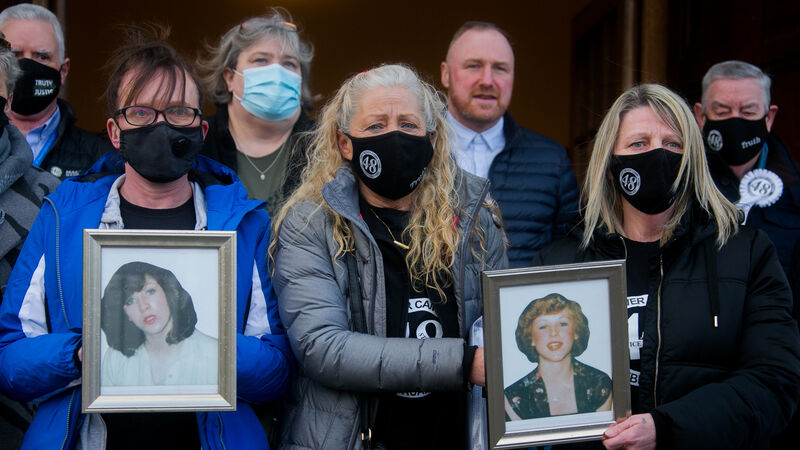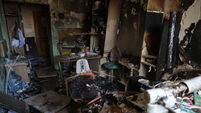New bill to allow compensation for Stardust inquest jurors

(Left to right) Martina Hand, Antoinette Keegan and Pauline Braymer with photos of Stardust victims Martina and Mary Keegan with Stardust supporters and families in February. The inquest into the 1981 nightclub fire that killed 48 young people has been stalled over issues relating to the payment of expenses for those summoned to sit on the jury. File photo: Gareth Chaney/ Collins Photos
A new bill to compensate jurors in the Stardust inquest is to come to Cabinet today.
The inquest into the 1981 nightclub fire that killed 48 young people has been stalled over issues relating to the payment of expenses for those summoned to sit on the jury for what is likely to be the longest-running and largest inquest in the history of the State.













